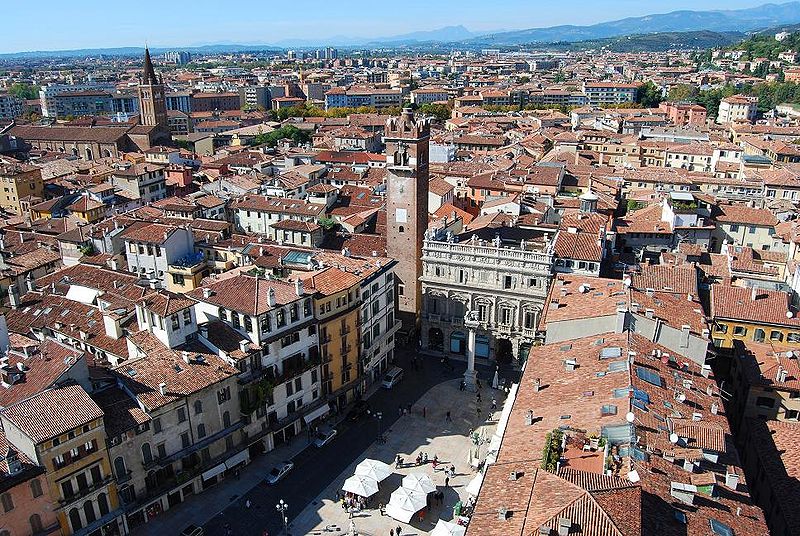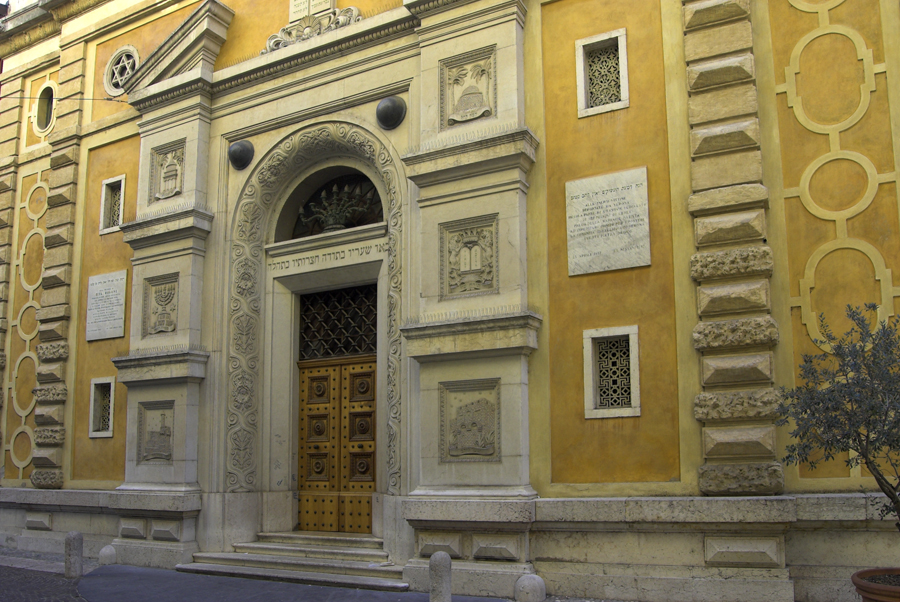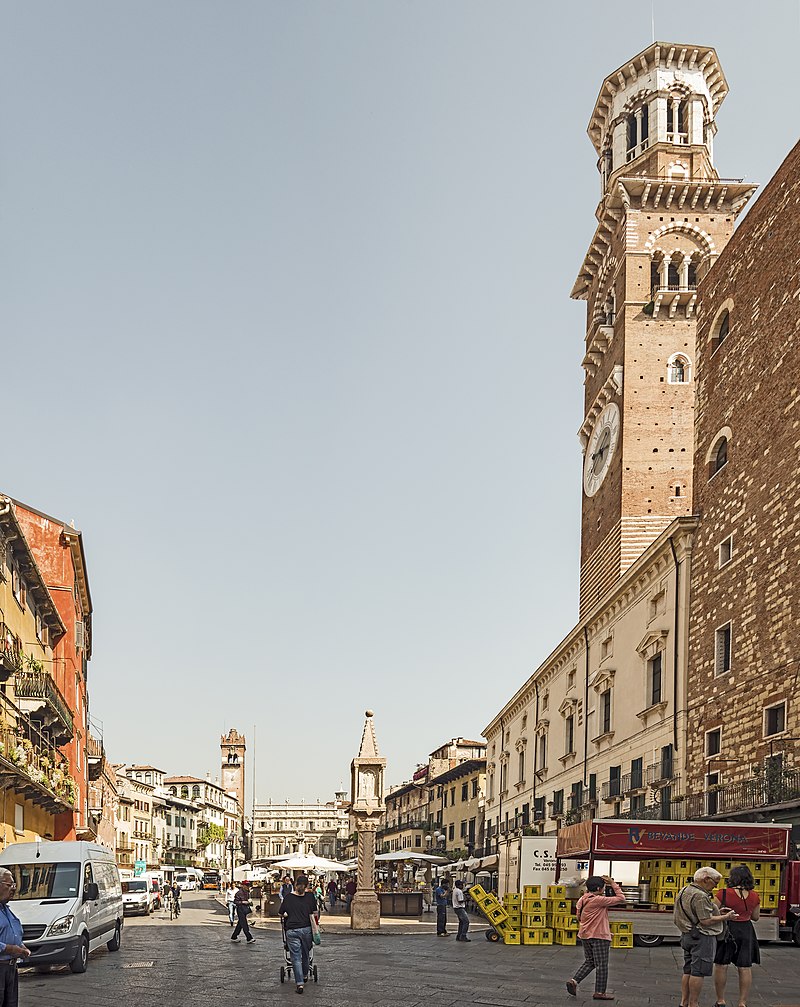The second largest city in the Veneto region in terms of economic activity, Verona is also known for its beautiful ancient cultural and religious buildings and its university.

The first documents that attest to a Jewish presence in Verona date from the 10th century, in reference to a desire to expel them. These documents indicate names of German origin. Among the Jewish personalities in Verona in the Middle Ages were the poet Abraham ibn Ezra, the rabbi Eliezer ben Shmuel and the Talmudist Hillel ben Shmuel.
After some back and forth due to the different degrees of tolerance of the local authorities, the Jews were recognised as citizens by a decree in 1406. This was on the condition that they were obliged to practice the profession of pawnbroker and to live in the ghetto of the San Sebastiano district. A synagogue was built at that time near the Piazza delle Erbe .

In the 16th century, they were given the opportunity to diversify their economic activities. Thus, Jews were found in the trade and sewing sectors in particular. They were also able to move to other parts of the city. In the middle of the 16th century, there were about 400 Jews in Verona.
However, at the end of this century, they were forced to return to a ghetto, still near Piazza delle Erbe, between Via Mazzini and Via dei Pelliciai.
The arrival in the 17th century of Sephardic Jews from Venice and the Iberian Peninsula led to the creation of another Jewish community, with its own synagogue, in the same area as the first. Despite their different rites and origins, the two communities were founded around a single synagogue in 1675. At the end of that century, there were 900 Veronese Jews.

When Napoleon’s troops arrived in 1797, the walls of the ghetto were demolished, but the Jews had already left the area in large part, a sign of their inclusion in the economic and social life of Verona. But also in the cultural life with the musicians Giacobbe Bassini Cervetto and his son Giacomo.
However, the community began to decline at the end of the 19th century. By 1909 there were only 600 Jews, and by 1931 there were 429. 31 Veronese Jews were deported and murdered during the Shoah. A plaque in their memory has been placed on the synagogue in Via Portici. Today, the Jewish community consists of about 100 members.
The former Jewish cemeteries were in Campo Fiore and Porta Nuova. The present Jewish cemetery is located in Borgo Venezia.
Sources : Veneto Jewish Itineraries by Francesca Brandes and Times of Israel